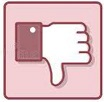Review Gilles Deleuze In others, ile-de-france, france | Author In Others
Only 33.33% People Answered Yes For the Poll
Gilles Deleuze
Others,
Ile-de-france,France - 0
November 5, 1995
Detailed description is Gilles Deleuze (January 18, 1925–November 4, 1995) was one of the most influential and prolific French philosophers of the second half of the 20th.
cc..
Established in the recent years Gilles Deleuze in others , ile-de-france in france.
This is a well known establihment acts as one-stop destination servicing customers both local and from other of the city.
Over the course of its journey , this business has establihed a firm hold in the [category].
The belief that customer satisfaction is an important as it products and services , have helped this establihment garner a vast base of customers and continue to grow day by day
Foods is provided with high quality and are pretty much the highlight in all the events in our lives.
Sweets and food are the ideal combination for any foodies to try and this Gilles Deleuze is famous for the same.
This has helped them build up a loyal customer base.
They have started a long journey and ever since they have ensure the customer base remains the same and growing month on month.
As they are located in favourable location , becomes the most wanted space for the tourist.
For any kind and assistance , it is better to contact them directly during their business hours.
Premises has a wide parking area and need to avail special permissions for parking.
Pets inside the premises are not allowed and require additional permission.
Cashless payments are available and extra charges for the credit cards are levid.
They are listed in many of the food delivery networks for home delivery with appropriate charges.
They accept cards , cash and other modes of payments
Tips are not actually encouraged but customers are willing to offer any benefit as needed.
There you can find the answers of the questions asked by some of our users about this property.
This business employs inviduals that are dedicated towards their respective roles and put in a lot of effort to achieve the common vision and goals.
It is a effortless task in communiting to this establishment as there are various modes available to reach this location.
The establishment has flexible working timings for the employees and has good hygene maintained at all times.
They support bulk and party orders to support customers of all needs.
Keywords List :
Author in franceAuthor in ile de franceAuthor in othersAuthor in 0Gilles deleuze1925 births1995 suicides20th century atheists20th century french historians20th century french non fiction writers20th century french philosophers20th century philosophersAnti psychiatryAtheist philosophersContemporary philosophersContinental philosophersCultural criticsEmpiricistsEpistemologistsFilm theoristsFoucault scholarsFranz kafka scholarsFrench anti fascistsFrench atheistsFrench essayistsFrench ethicistsFrench historians of philosophyFrench male non fiction writersFrench political philosophersHegel scholarsHume scholarsKant scholarsLiterary theoristsLycee carnot alumniLycee henri iv alumniMass media theoristsMaterialistsMetaphilosophersMetaphysiciansMoral philosophersNeo spinozismNietzsche scholarsOntologistsPhilosophers of artPhilosophers of culturePhilosophers of economicsPhilosophers of educationPhilosophers of ethics and moralityPhilosophers of historyPhilosophers of literaturePhilosophers of lovePhilosophers of mindPhilosophers of psychologyPhilosophers of sciencePhilosophers of sexualityPhilosophy writersPolitical philosophersPoststructuralistsScholars of marxismSocial commentatorsSocial criticsSocial philosophersSpinoza scholarsSpinozist philosophersSuicides by defenestrationSuicides by jumping in franceSuicides in franceUniversity of paris alumniUniversity of paris facultyGilles deleuzeAnti psychiatryAtheist philosophersContinental philosophersEmpiricistsEpistemologistsFilm theoristsKant scholarsLiterary theoristsMaterialistsMetaphysiciansOntologistsPhilosophers of mindPhilosophers of sciencePolitical philosophersUniversity of paris alumniGilles deleuze
Frequently Asked Questions About This Location

